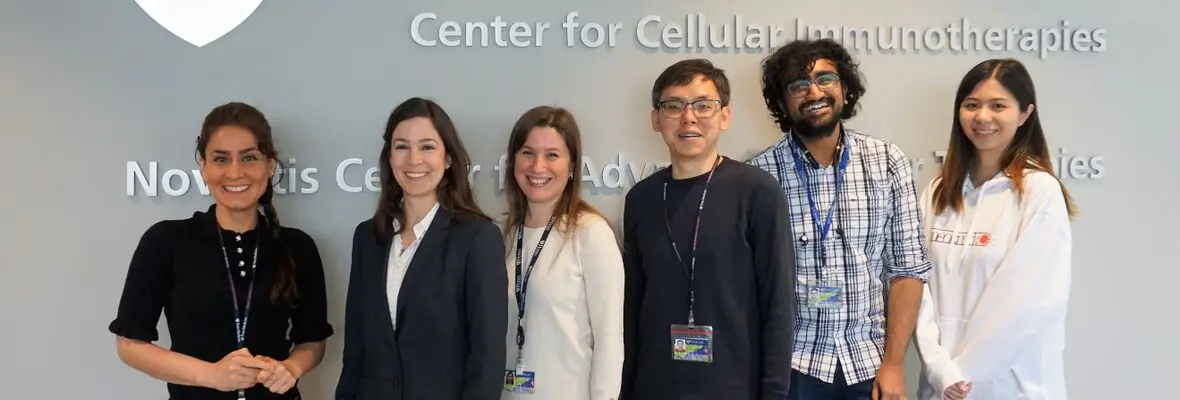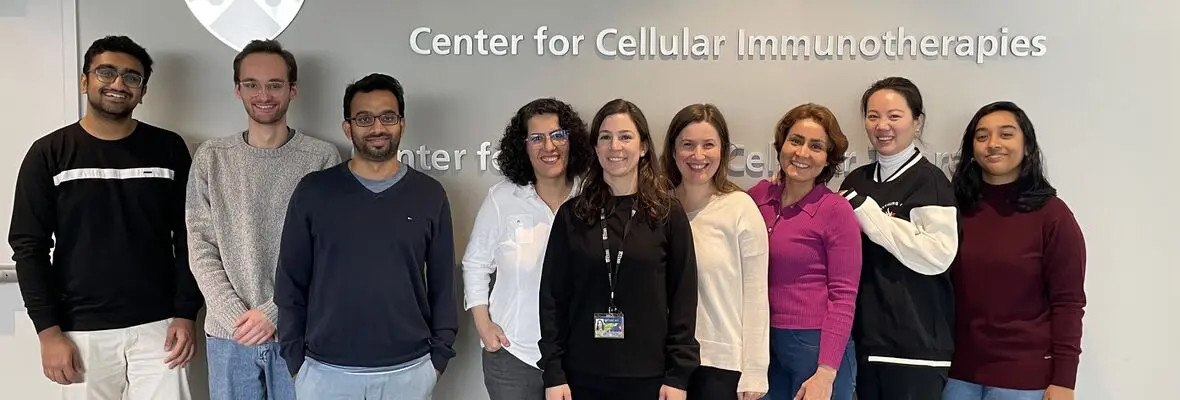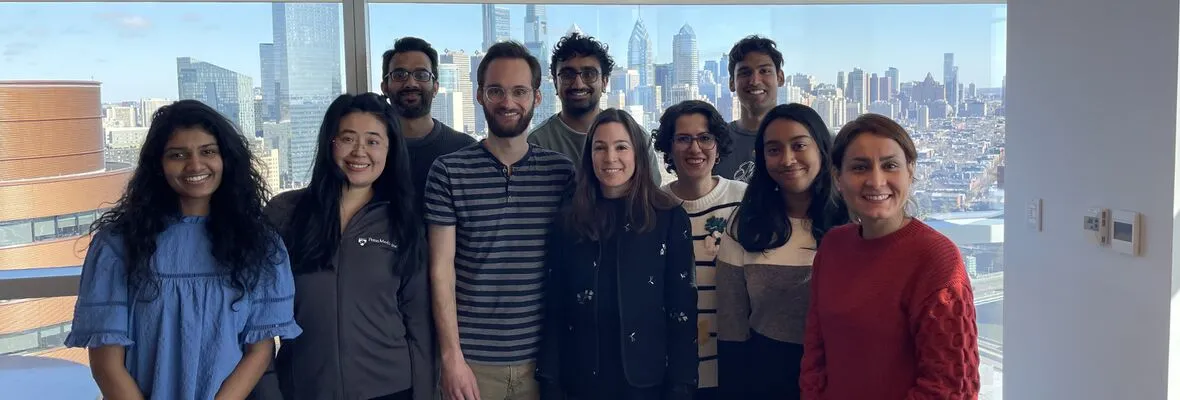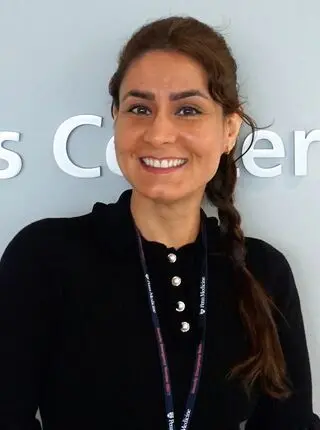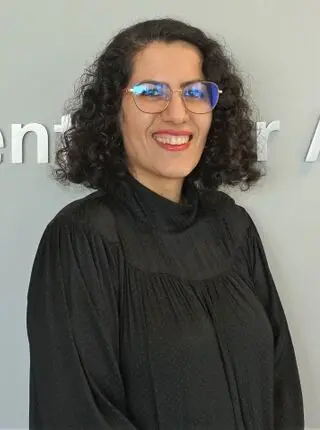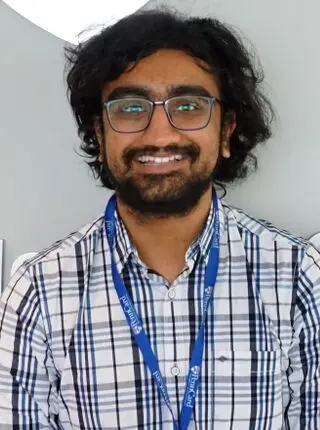Expert Scientists
-
Read More about Masoumeh Es-haghi, PhD
Masoumeh Es-haghi, PhD
Masoumeh Es-haghi, PhD
Masoumeh started her research activities in 2006 with her master’s thesis on in vitro
production and molecular studies characterizing the preimplantation embryo and
received a Ph.D. in biotechnology. She has multiple years of experience in
understanding the stemness and migratory potential of primordial germ cells for next-
generation genetic engineering. In 2017, she pursued her
research career as a Postdoctoral Research Fellow in Eastern and Northern Europe
focusing on translational nanomedicine and biomarker discovery for assisted
reproductive technologies, exosome engineering of recombinant fusion proteins for
gene delivery, and immune microenvironmental studies of solid tumors resulting in a
patent and an innovation.
After 15 years of a life dedicated to science, she joined CCI to work with the HGEL team
toward more discoveries and advanced therapies for translational cancer medicine that
will improve patients’ life expectancy. -
Read More about Elahe Kamali Ghahe, PhD
Elahe Kamali Ghahe, PhD
Elahe Kamali Ghahe, PhD
Elahe (she/her) is a Ph.D. in Molecular Genetics. She is passionate about using gene editing platforms to advance adoptive cell therapies. She relocated to the US for her post-doctoral training at Yale School of Medicine to explore the cell biology of CAR signaling and improve the CAR-T efficacy using genome editing. Elahe joined the Herbst-Nowrouzi lab in 2023 to evaluate the delivery of gene editing cargos using Lipid Nanoparticle, aiming to develop robust and reliable cell products for future development of cancer immunotherapy. Outside of her research, she enjoys traveling, cycling, watching movies, and spending time with family and friends.
-
Read More about Rujul Jagdish Deolikar, MSc
Rujul Jagdish Deolikar, MSc
Rujul Jagdish Deolikar, MSc
Rujul is a Master's student in Biotechnology at the University of Pennsylvania. He has an
undergraduate degree in Biotechnology from Amity University, Mumbai, and further explored
his scientific interests in a hematopoietic stem cell-related project using Drosophila as a model
system at the Advanced Centre for Treatment, Research and Education in Cancer, Navi
Mumbai, for his Bachelor's Dissertation.
His interests in research include immunology, hematology, cancer biology and of course, the
field of cell and gene therapies, with the help of which he wishes to utilize his training to
formulate safe, effective, and patient-specific products to treat disorders like cancer without
the use of potentially toxic therapies. He is very excited about the future of the gene therapy
field.
Presently, he is working as a Student Worker at the Human Genome Editing Lab to work on
enhancement of the Hematopoietic Stem Progenitor Cell population by CRISPR/Cas9-mediated
genetic engineering combined with the establishment of defined functional assay as a readout. -

Vilas Desai, PhD
Vilas Desai, PhD
-
 Read More about Davin Tafuri, MSc
Read More about Davin Tafuri, MScDavin Tafuri, MSc
Davin Tafuri, MSc
Davin (he/him) joined the HGEL lab as a Research Specialist in 2023 to evaluate CRISPR-Cas methods for the generation of CAR-T and HSC therapies, with a particular focus on off-target analysis. He is driven to improve the use of gene editing in medicine.
He obtained his bachelor’s degree in Biochemistry and Molecular Biology (BCMB) from Clark University in Worcester, Massachusetts, in 2022. Subsequently, Davin enrolled in the accelerated BCMB Master’s program at Clark and completed his thesis in 2023. His thesis research, conducted in Dr. Denis Larochelle's lab, involved developing a fluorescent reporter assay to assess the influence of the epigenetic enzyme Dnmt2 (DNA Methyltransferase 2) on translation in the amoeboid model Dictyostelium discoideum.
In his free time, Davin enjoys biking in nature, binging TV shows, and trying new food recipes.
-
 Read More about Bhargavi Subramanian, BSc
Read More about Bhargavi Subramanian, BScBhargavi Subramanian, BSc
Bhargavi Subramanian, BSc
Bhargavi (she/her) is a Master’s student in Biotechnology with a focus on Biopharmaceutical Engineering at the University of Pennsylvania. She holds an undergraduate degree in Biotechnology from SRM University, Chennai, India. During her undergraduate studies, she worked on metagenomics and bacteriology projects and published her findings. Additionally, she worked at the Indian Council of Medical Research on a project titled "Diagnosis of Drug-Resistant Tuberculosis Using Targeted Next-Generation Sequencing."
Her research interests include the optimization of nanoparticles for the delivery of drugs and nucleic acids, as well as the potential applications of this technology in cancer treatment.
Currently, she is working at HGEL to assess the delivery of gene-editing cargos via lipid nanoparticles, aiming to create durable and dependable cell products for the advancement of cancer immunotherapy.
Outside of research, she enjoys singing, swimming, cooking, and exploring new cuisines in the city.
-

Vineeth Koneru, BSc
Vineeth Koneru, BSc
-
Chenchen Li, PhD
Chenchen Li, PhD
-
Aditi Madathingal, BSc
Aditi Madathingal, BSc
-

Natalie Cooper, BSc
Natalie Cooper, BSc
-

Jesus Junco Barranco, MD/PhD
Jesus Junco Barranco, MD/PhD
-

Laura Gerique Garcia, PhD
Laura Gerique Garcia, PhD


